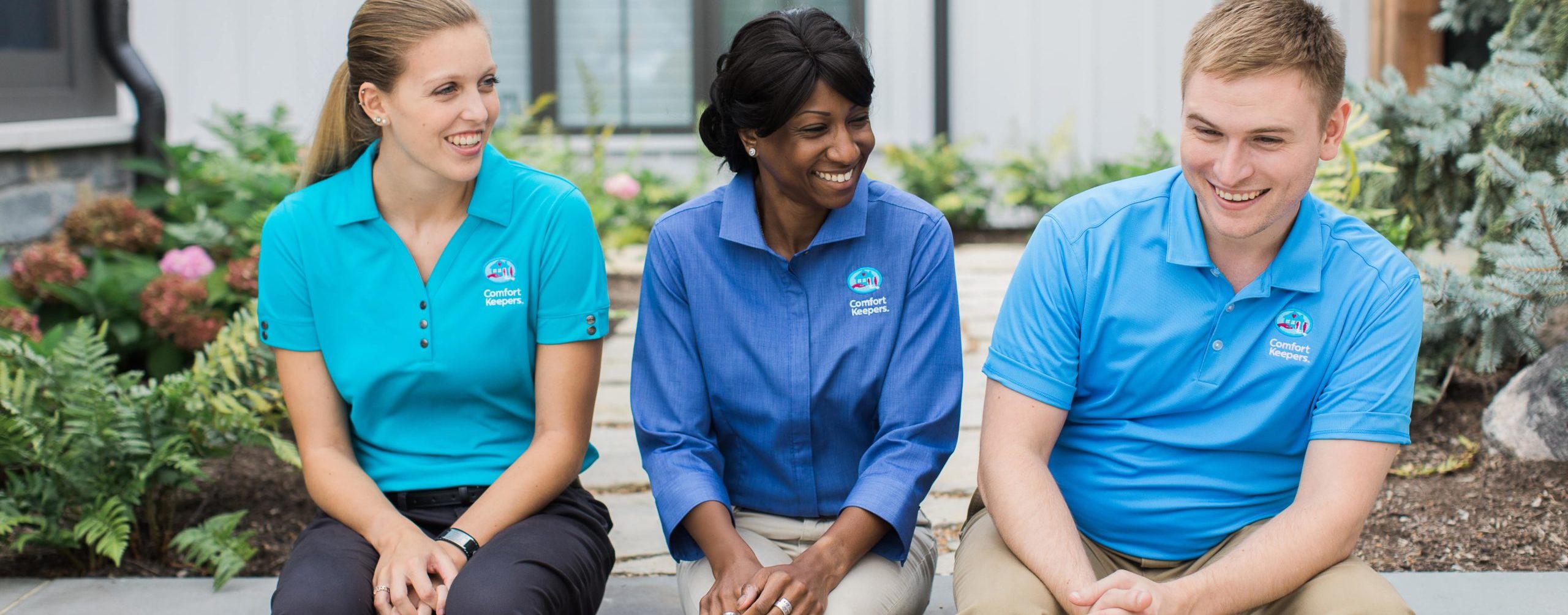Alzheimer’s Disease: Dealing with Difficult Behaviour
Dementia | October 3, 2024
More than 16 million Americans provide unpaid care for people with Alzheimer’s or other dementias.
Caring for a loved one can be a rewarding experience, but it’s not without challenges. These challenges can be significantly more impactful for those caring for a senior with Alzheimer’s disease or other form of dementia. Changes in behaviours can occur for a variety of reasons, including over-stimulation, physical discomfort, confusion, exhaustion caused by sleep problems, medication, or changes in routine.
Understanding the cause of behavioural changes is critical for caregivers, families, and friends. And, it’s helpful for caregivers to know how to manage behaviours that allow them to provide safe and effective support and diffuse tense situations.
These behaviours can include:
- Depression
- Anxiety
- Confusion
- Aggression or anger
- Suspicion
- Hallucinations
- Pacing or wandering
The most important thing that caregivers need to remember is that challenging behaviours may not be entirely avoidable. It’s also not the fault of the person with Alzheimer’s or dementia. These behaviours are sometimes a common product of the disease. And, there is specialized support a caregiver can use to help keep a challenging behaviour from escalating.
While there is no guaranteed approach that will work with every person or situation, there are some methods that can help caregivers manage trying times:
Staying calm– It’s not uncommon for caregivers to feel attacked or helpless when they are caring for someone exhibiting difficult behaviours. Remembering that it isn’t personal and that it’s a symptom of the disease, can help caregivers manage their emotions and avoid contributing to tense or difficult situations. Arguing or reasoning can often escalate an outburst, so it’s necessary for caregivers to stay calm and supportive
Keeping a schedule– Seniors that suffer from Alzheimer’s disease and other dementias often find it reassuring to have a set schedule for meals, activities and daily tasks. Creating a schedule, and sticking to it as much as possible, can help prevent anxiety, confusion, and anger.
Exercise– Exercise, with approval from a physician, is a great stress reliever for both seniors and caregivers. And, participating in activities together helps foster important emotional connections.
Participating in activities– Whether it’s an enjoyable hobby, household chore or physician-approved exercise, participating in joyful activities has shown to help manage challenging behaviours. These can be pre-scheduled or introduced when difficult behaviours are recognized. For example, caregivers can ask for help folding laundry to ease anxiety or can play music or sing to calm someone feeling confused, angry or depressed.
Mindful communication– Caregivers shouldn’t underestimate the power of communication. Caregivers can use soothing tones, speak in a friendly way and make eye contact to convey normalcy, understanding, and compassion. This can help seniors experiencing anxiety or frustration to calm themselves.

Comfort Keepers®Can Help
At Comfort Keepers®, we provide specific training for our caregivers and individualized care plans to provide care and support to seniors with Alzheimer’s disease and to their families. Our specially trained Comfort Keepers engage clients in intellectual, physical and emotional interactions that complement medical treatment and improve the quality of life for everyone involved. And, they can facilitate stress management activities, support for physician-approved diet and exercise plans, provide transportation to appointments and will evaluate a home for safety as part of an in-home assessment. For more information on how in-home caregiving can help those with Alzheimer’s disease or dementia, contact our office today.
References
- National Institute on Aging. “Managing Personality and Behavior Changes in Alzheimer’s.” Web. 2017.
- Verywell Health. “Complete Guide to Challenging Behaviors in Dementia.” Web. 2019.
- Alzheimer’s Association. “Stages and Behaviors.” Web.
Individualized Home Care Options
Long-Term Home Care, 24 Hour Home Care & Short Term Care Options Customized for You












